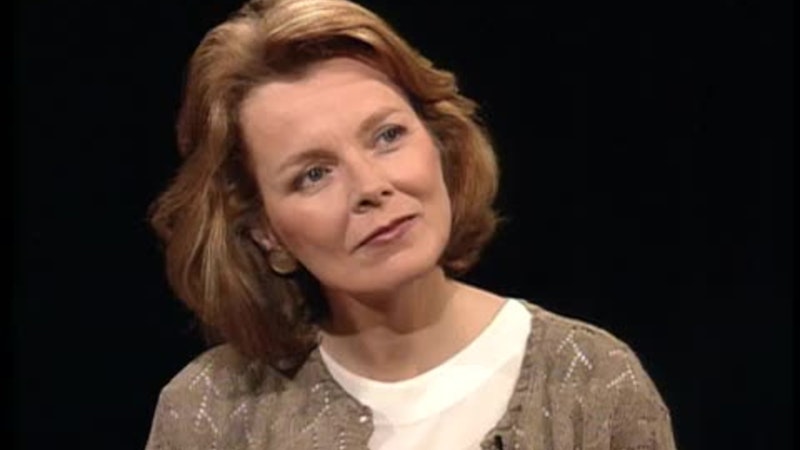The first surprise on the morning of Nov. 21st was seeing a strip ad for Billy Bob Thornton’s second season of Landman atop the logo of The Wall Street Journal’s print edition. I’ve always liked Thornton, especially in Friday Night Lights and Bad Santa, but he’s really hit his stride in the past nine years on TV, first with the layer-upon-layer Goliath and now Landman. I took notice because it’s rare to see film or TV advertisements of any kind today—and the ad was pegged to an inside story about Ari Larter, Thornton’s on-screen ex-wife—not much effect on me, since I tune in. I do wonder how the demographics of the Journal and a “prestige” show like Landman intersect. I suspect, but still dread, the answer.
The next instance of skimming the papers and finding something curious (although in the following case just part of the absence of competent sub-editors) was a New York Times editorial about Trump’s economic incompetence—a fair topic, with his tariffs on any given day doing somersaults a week later, and, as I’ve noted before, his barbaric “Know-Nothing” blanket condemnation of illegal immigrants—that provided the mandatory bias of that paper’s editorial writers. The headline, “Does Trump Know the Price of Milk?” was, in common parlance today, “click-bait” or “engagement farming,” since that question was never brought up in the long edit. (Mercifully, George H.W. Bush’s alleged baffled encounter with a supermarket scanner in 1992 wasn’t mentioned.) After blasting the President for his scattershot comments about a healthy economy (dubious), the “Editorial Board” wrote: “The truth is obvious to people who pay their own bills or shop for their own groceries. Mr. Trump should be spending his time figuring out how the government can help.” The “government” rarely helps “the people,” as most know, and I also doubt that more than two or three members of the Editorial Board takes the time to shop (except Trader Joe’s!) or pay their own bills. That would be left to the “regular” people who may or may not read the Times.
On the same day, two longtime pundits, David Brooks (Times) and Peggy Noonan (Journal) had contradictory columns on the continuing Jeffrey Epstein fallout. (It’s a shame that the “supermarket tabloids” of yore no longer really exist, for Epstein stories would’ve sold loads of copies.) Brooks, under the headline, “The Epstein Story? Count Me Out.,” conducts a seminar for most his column about… Epstein and the reason the story’s still in the news—he doesn’t mention the Congressional hearings. He writes: “But the most important reason the Epstein story tops our national agenda is that the QAnon mentality has taken over America… If there is a pizzeria on Connecticut Avenue in Northwest, D.C., it must be because Hillary Clinton is running a child abuse sex ring in the basement.” That’s a sentence that Generoso Pope Jr., owner of the National Enquirer in its heyday, would’ve slipped Brooks a $50 bill for.
Brooks has Times tenure—you figure that out, for I can’t—but this corker is a beaut. He writes: “I know a thing or two about the American elite, ahem, and if you’ve read my work, you may be sick of my assaults on the educated elites for being insular, self-indulgent and smug.” I’m not certain this Bobo in End-of-Democracy-America realizes that’s a self-description, but “readers of his work” are inured to his boxing-your-ear hypocrisy. He goes on: “But the phrase ‘the Epstein class’ is inaccurate, unfair and irresponsible. Say what you will about our financial, educational, nonprofit and political elites, but they are not mass rapists.” Who said they were? I’ve never seen Barack Obama, George W. Bush, Jamie Dimon, Prince William (maybe, adding a Generoso Pope twist, Wills was a young guest—more “age-appropriate”—accompanying Uncle Andrew) or John Roberts described in that way.
By contrast, Noonan writes: “The Epstein story was another failure of the 21st-century elite. It wasn’t Iraq or the 2008 economic crash or open borders, but it was of a piece, and it packs a cultural wallop we’ll continue to feel for years.”
Whereas Brooks minimizes the Epstein story, saying, “When the giant issues like A.I. and Chinese dominance come crashing down on us, we will look back on the Epstein moment [I didn’t know a “moment” could last a decade] and ask: ‘What the hell were we thinking?’”, Noonan’s on a different course. She says, “What the Epstein story is really about is unloved girls. It’s about the children in this country who aren’t taken care of, who are left to the mercy of the world… That’s how most of those girls wound up in a room with Jeffrey Epstein.”
Noonan makes more sense than Brooks—low bar—but she could’ve added a paragraph about the hushed-up scandals that’ve circled around Hollywood for years. Kevin Spacey was sacrificed and so was Harvey, but what about all the young actors (who won’t open up for career reasons) taken advantage of by powerful decision-makers? I’ve no idea who was corn-holed or raped, but it’d be eye-opening to hear the opinions of stars like Leonardo DiCaprio, Ethan Hawke, Drew Barrymore and Rob Lowe on the subject. There are still some news organizations that have the staff to investigate Hollywood for months, and a blockbuster story might give the media more credibility.
—Follow Russ Smith on Twitter: @MUGGER2023

